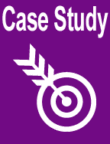
Visit Our Sponsors |
|
|
|
|
|
|
|
|
|
|
|
|
|
|
|
|
|
|
|
|
|
|
|
|
|
|
|
|
|
|
|
|
|
|
|
|
|
|

Any American company stuck in the early stages of a Collaborative Planning, Forecasting and Replenishment (CPFR) pilot would do well to look across the ocean for guidance. In Spain, a major provider of cleaning products has realized dramatic results with one of the country's largest grocery chains.
The partners are Henkel KGaA, the Dusseldorf, Germany-based maker of household cleaners, adhesives, toiletries and other home care products, and Grupo Eroski, the Spanish grocery chain whose thousands of outlets range from "hypermarkets" to mini-markets. Together they launched a successful CPFR pilot, at a time when few such efforts were in evidence in Europe or the U.S.
Henkel may not be a household name in the U.S., but it's tough to ignore in Europe, which accounts for 50 percent of sales. The diversified company has sold off or acquired numerous entities in its 126 years of existence. In 2001, it shed two chemical-making units, Cognis and Henkel-Ecolab. The move reflected a desire to focus on its core product line of detergents, cleansers, adhesives and toiletries. Henkel's current U.S. holdings include Manco, the maker of Duck Tape, and a 27-percent share in The Clorox Co.
| It took about a year for Henkel to get the CPFR program's elements fully in place. | |
| CPFR is still a relatively new concept in Europe. So is supply-chain management, which encourages the free flow of data. | |
RELATED CONTENT
RELATED VIDEOS
Timely, incisive articles delivered directly to your inbox.

